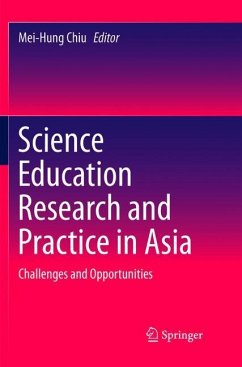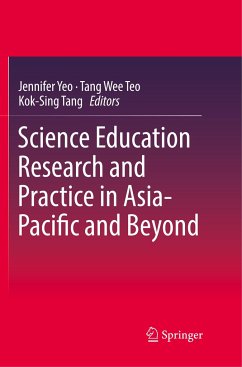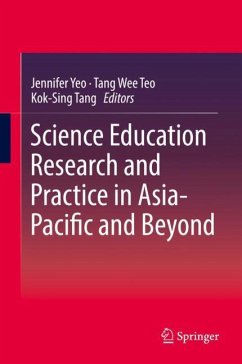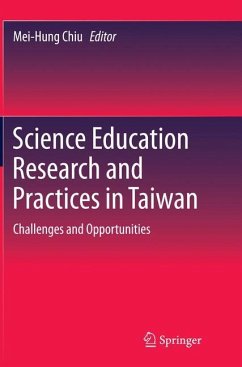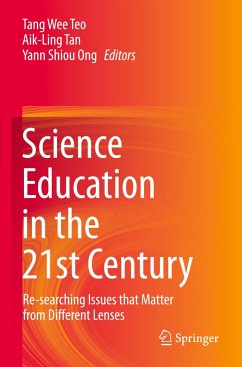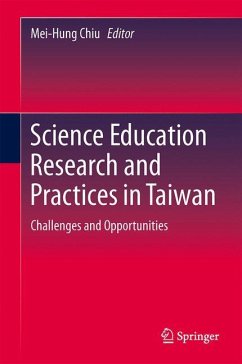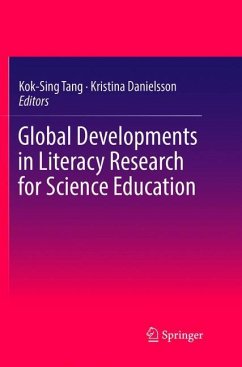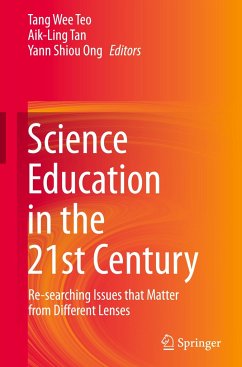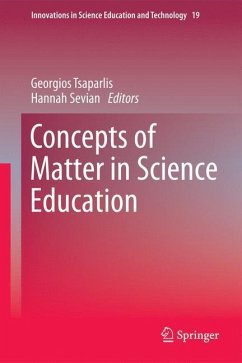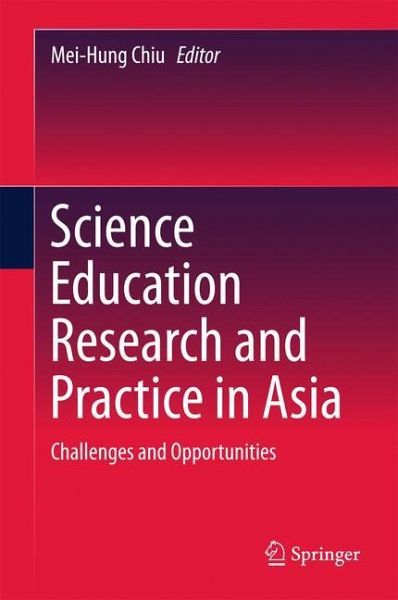
Science Education Research and Practice in Asia
Challenges and Opportunities
Herausgegeben: Chiu, Mei-Hung

PAYBACK Punkte
39 °P sammeln!
This book discusses the scope of science education research and practice in Asia. It is divided into five sections: the first consists of nine chapters providing overviews of science education in Asia (China, Lebanon, Macau, Malaysia, Mongolia, Oman, Singapore, Taiwan, and Thailand). The second section offers chapters on content analysis of research articles, while the third includes three chapters on assessment and curriculum. The fourth section includes four chapters on innovative technology in science education; and the fifth section consists of four chapters on professional development, an...
This book discusses the scope of science education research and practice in Asia. It is divided into five sections: the first consists of nine chapters providing overviews of science education in Asia (China, Lebanon, Macau, Malaysia, Mongolia, Oman, Singapore, Taiwan, and Thailand). The second section offers chapters on content analysis of research articles, while the third includes three chapters on assessment and curriculum. The fourth section includes four chapters on innovative technology in science education; and the fifth section consists of four chapters on professional development, and informal learning. Each section also has additional chapters providing specific comments on the content. This collection of works provides readers with a starting point to better understand the current state of science education in Asia.





